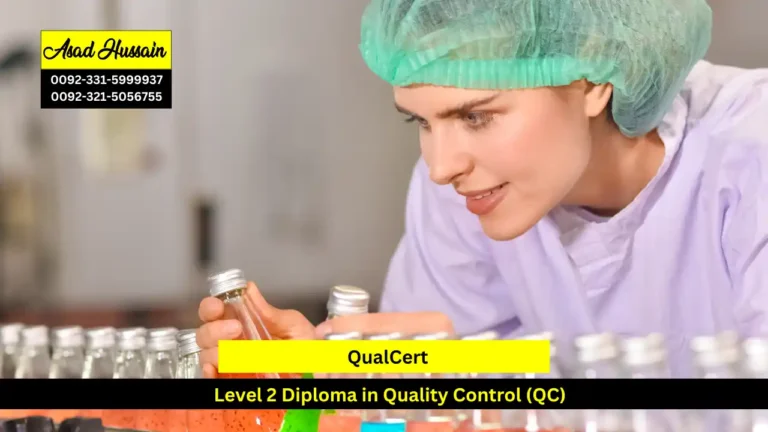In the realm of automotive engineering, accurate measurement of engine power is critical for performance assessments, regulatory compliance, and consumer information. ISO 1585:2020, formally titled “Road Vehicles — Engine Test Code — Net Power,” plays a pivotal role in standardizing how engine power is measured and reported. This blog post delves into the essence of ISO 1585:2020, its importance, and its impact on the automotive industry.
ISO 1585:2020 is an international standard developed by the International Organization for Standardization (ISO). It specifies the procedures and conditions for measuring the net power of internal combustion engines used in road vehicles. The term “net power” refers to the engine’s output power after accounting for losses due to accessories like the alternator, water pump, and air conditioning compressor, but before any additional losses that may occur in the transmission.
The standard ensures that power measurements are consistent, reproducible, and comparable across different testing facilities and vehicles. This uniformity is crucial for manufacturers, regulators, and consumers alike, as it helps in making fair comparisons and informed decisions.
Implementing ISO 1585:2020 requires adherence to its guidelines throughout the testing and reporting processes. Automotive manufacturers and testing facilities must ensure that their equipment is properly calibrated and that tests are conducted under the specified conditions. While this may involve additional steps and costs, the benefits of standardization far outweigh these challenges.
By providing a common framework for engine power measurement, ISO 1585:2020 fosters transparency and trust in the automotive industry. It ensures that all stakeholders, from manufacturers to consumers, can rely on accurate and consiste.
ISO 1585:2020 is more than just a technical standard; it is a cornerstone for fairness, accuracy, and reliability in engine power measurement. Its adoption helps to level the playing field for automotive manufacturers, provides consumers with trustworthy information, and supports regulatory compliance. As the automotive industry continues to evolve, standards like ISO 1585:2020 remain essential for maintaining quality and consistency in vehicle performance metrics.
Program Highlights
Mandatory Units
- Introduction to Engine Testing
- Test Procedures and Conditions
- Measurement Techniques
- Compliance Testing and Regulations
- Advanced Topics in Engine Testing
- Practical Applications and Case Studies
- Educational Background:
- A high school diploma or equivalent qualification is required for enrollment in this course.
- While no specific academic background is mandatory, a basic understanding of chemistry, materials science, or related fields would be beneficial.
- Language Proficiency:
- Proficiency in English is essential, as all course materials, lectures, and assessments will be conducted in English.
- Non-native English speakers may be required to demonstrate English language proficiency through standardized tests such as TOEFL or IELTS, or equivalent qualifications.
- Technical Requirements:
- Access to a computer with a reliable internet connection is necessary for accessing course materials, participating in online activities, and submitting assignments.
- Basic computer skills, including web browsing, email usage, and document editing, are required.
- Interest in Coatings Industry:
- A genuine interest in paints, varnishes, coatings technology, or related fields is desirable.
- Individuals with professional roles in industries such as automotive, aerospace, construction, manufacturing, or materials science will find this course particularly relevant.
1. Introduction to Engine Testing
- Understand the Fundamentals: Describe the basic principles and objectives of engine testing, including the purpose and importance of measuring engine performance.
- Identify Key Terminology: Define key terms and concepts related to engine testing, such as net power, torque, and engine efficiency.
- Recognize Historical and Modern Contexts: Explain the evolution of engine testing methods and their impact on the automotive industry.
2. Test Procedures and Conditions
- Apply Standardized Procedures: Demonstrate the ability to apply standardized test procedures for engine performance measurement, ensuring consistency and accuracy.
- Control Testing Conditions: Identify and manage the various conditions that must be controlled during engine testing, such as temperature, humidity, and barometric pressure.
- Interpret Test Protocols: Analyze and interpret test protocols to ensure compliance with established standards, such as ISO 1585:2020.
3. Measurement Techniques
- Utilize Measurement Instruments: Use and calibrate measurement instruments for assessing engine parameters such as power, torque, and fuel consumption.
- Evaluate Measurement Accuracy: Assess the accuracy and reliability of different measurement techniques, and apply methods to minimize errors and inconsistencies.
- Interpret Data: Analyze and interpret data obtained from engine tests to draw meaningful conclusions about engine performance.
4. Compliance Testing and Regulations
- Understand Regulatory Requirements: Explain the regulatory requirements and standards related to engine testing, including emissions, safety, and performance criteria.
- Conduct Compliance Testing: Perform engine tests to verify compliance with regulatory standards and interpret results in the context of legal requirements.
- Report Findings: Prepare and present compliance reports that accurately reflect test results and adherence to regulations.
5. Advanced Topics in Engine Testing
- Explore Emerging Technologies: Investigate and explain advanced technologies and methodologies in engine testing, such as alternative fuels, hybrid systems, and electric powertrains.
- Analyze Complex Testing Scenarios: Evaluate and solve complex testing scenarios involving advanced engine technologies and unconventional performance metrics.
- Integrate Theoretical Knowledge: Apply advanced theoretical knowledge to practical engine testing challenges and innovations.
6. Practical Applications and Case Studies
- Apply Theoretical Knowledge: Apply theoretical knowledge of engine testing to practical scenarios and real-world case studies, demonstrating problem-solving skills and analytical abilities.
- Analyze Case Studies: Critically analyze case studies to understand the practical application of engine testing methods and their impact on engine performance and design.
- Develop Solutions: Propose and justify solutions to common issues and challenges encountered in engine testing based on case study insights and practical experiences.
Automotive Engineering Students
Aspiring engineers in automotive programs will find this course particularly beneficial. It provides foundational knowledge and hands-on experience essential for understanding engine performance and testing procedures. Students will gain practical skills that will be useful for their academic projects, internships, and future careers in automotive engineering.
Professional Engineers and Technicians
Engineers and technicians working in automotive design, development, and manufacturing will find advanced topics and case studies highly relevant. The course offers a deep dive into measurement techniques, compliance testing, and emerging technologies, enabling professionals to enhance their testing practices and stay updated with industry standards.
Regulatory and Compliance Specialists
Regulatory professionals who ensure that vehicles meet safety, emissions, and performance standards will benefit from the course’s focus on compliance testing and regulations. It provides insights into how to conduct compliance tests effectively and interpret results in accordance with legal requirements.
Automotive Enthusiasts and Mechanics
Car enthusiasts and mechanics interested in understanding the intricacies of engine performance will find practical applications and case studies particularly engaging. This course helps enthusiasts gain a deeper appreciation of engine testing and its impact on vehicle performance and efficiency.
Industry Consultants and Analysts
Consultants and analysts working with automotive companies or involved in market research will benefit from the course’s comprehensive coverage of engine testing methods and their applications. It provides the tools needed to analyze performance data and contribute valuable insights to industry reports and recommendations.
Research and Development Teams
R&D professionals in the automotive sector who are involved in developing new engine technologies or improving existing ones will find the advanced topics and measurement techniques highly relevant. The course offers knowledge on emerging technologies and innovative testing methodologies that can drive cutting-edge developments.
Educational Instructors and Trainers
Instructors and trainers in automotive programs or professional training institutions can use this course as a resource to enhance their curriculum and teaching materials. It provides a structured approach to engine testing that can be integrated into educational modules or professional development workshops.
Product Managers and Marketing Professionals
Product managers and marketing professionals in the automotive industry can benefit from understanding engine performance metrics and compliance standards. This knowledge helps in accurately communicating product features, performance capabilities, and regulatory adherence to consumers and stakeholders.






